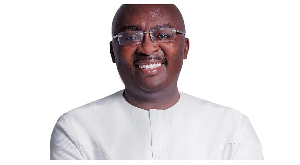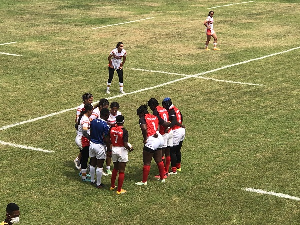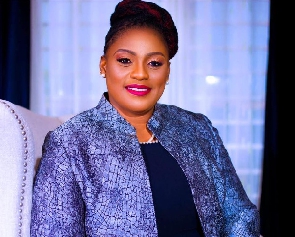Business News of Friday, 23 June 2017
Source: thebftonline.com
SMEs must be ‘investment ready’ - GroFin Ghana
Small and Medium Scale Enterprises (SMEs) in the country have been urged to establish good governance structures, accounting systems and adopt ethical business standards to be investment ready.
Samuel Sedagah, Country Manager of GroFin Ghana Limited, said: "We should move beyond the shout about access to finance being a challenge and begin to look within ourselves and make sure that we formalise our businesses to attract investment".
He added that: "Entrepreneurs and SMEs are always saying access to finance is the problem but the problem is not access to finance. How come some SME businesses can attract funding while others are unable to do that?
The reason is some of these companies are ready to attract funding but others are not and it behooves on these entrepreneurs and SMEs to ensure that they package themselves and make themselves investment ready by putting in place the right structures."
He was speaking at the monthly business meeting of the Tema Branch of the Ghana Chamber of Commerce and Industry, which brought together entrepreneurs, and business executives within the sector, Mr. Sedagah posited that, the problem with most entrepreneurs is their inability to attract investors due to poor business formalisation.
"It is the role of these entrepreneurs to package themselves adequately and be investment ready by formalising their systems and good structures to enable them attract investors. GroFin as an Investor would be interested in businesses that are either formalised or are willing to walk through the process of formalization towards attaining a strategically planned growth path," he stated.
Mr. Sedagah encouraged entrepreneurs to look within themselves and make sure they put the right measures in place to formalise their businesses, which will ensure they are able to attract investors.
GroFin's analysis shows that there are over 8,000 SMEs across Africa and the Middle East and that 57 per cent of SMEs had no business plan, 72 per cent had no formal accounting systems, 43 per cent were not compliant with local regulations, 66 per cent lacked environmental safety standards, and 63 per cent of capital was at risk.
Mr. Sedagah indicated that GroFin's insights into the SME sector in developing countries indicated that what SMEs needed to flourish was a realistic business plan, a consistent review of management accounts and performance, robust internal control systems, operational efficiency, good succession plan among others.
He said GroFin, therefore, assessed the businesses of their clients and provided appropriately structured finance packages that considered their business's end-to-end needs.
Mr. Raymond Denteh, GroFin's Senior Investment Manager, in a presentation added that: "GroFin delivers business support to clients prior to the investment and during investment period“ focusing on improving business viability, sustainability and growth, "adding that for this reason, entrepreneurs need to be receptive to receiving advice and implementing recommendations, normally around improving formalization of their business."
He emphasised that GroFin, which was established in 2004 with the sole focus on developing and managing SME funds that address the finance and business support needs of entrepreneurs, currently manages 10 SME funds with total capital commitments in excess of US$500 million.
GroFin is also supported by more than 30 leading international investors, adding that GroFin's target is to assist committed entrepreneurs to access tailored finance and experienced business support.
Since the inception of GroFin, he explained that the company has approved over 750 transactions, sustained 95,125 total number of jobs and 480,000 total family members impacted by investees, as well as sustained 28,500, representing 30%, female jobs and added US$700 million economic value.
"We ensure that the businesses have a measurable impact and that SMEs that provide indirect job opportunities like training, skills development and or environmental services such as water, waste, energy, ecotourism are also attractive to GroFin."
"GroFin's minimum financing is US$100,000, cedi equivalent with a maximum cap of US$1.5million also equivalent in cedi equivalent. Repayments are normally in local currency except where the client wants the currency in foreign currency," he said.
"GroFin makes sure that we provide you with clear information and that approval or non-approval will be based on the clarity of information submitted" he said.
"Our clients can use our finance packages for unique needs and at different stages of business maturity such as expanding the business or a new product line, purchasing of property or assets for the business, and as a start-up to commence business operations," he stated.
















